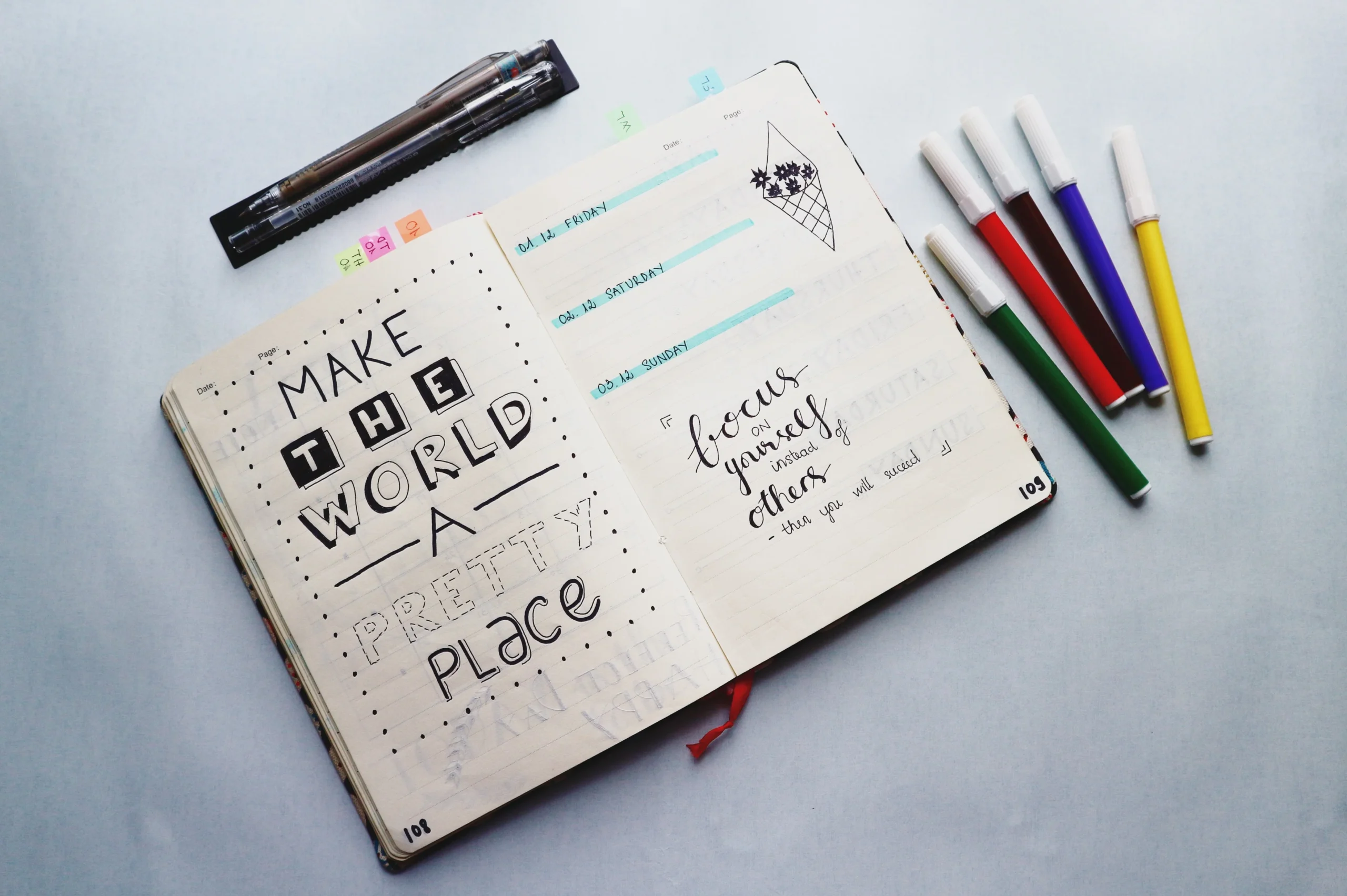Ever sit down with a notebook, pen in hand, and then—nothing? Your mind goes blank. You want to journal, but don’t know where to begin. It happens to all of us. Whether you’re new to journaling or just stuck in a creative block, knowing what to write can be tough.
But the truth is, journaling doesn’t have to be deep, poetic, or perfect. It just has to be you. So, if you’re staring at a blank page, here are some simple and effective journaling ideas to get your thoughts flowing.

1. Write About Your Day (Even If It Was Boring)
Sometimes, the best way to start is by writing what happened that day. It can be small things—what you had for lunch, something funny someone said, or what the weather was like.
Why it works:
It gets your pen moving and your brain warmed up. Before you know it, your thoughts will start flowing more freely.
2. Gratitude List
List five things you’re grateful for today. Big or small, doesn’t matter. It can be your morning coffee, your pet, or even clean laundry.
Why it works:
It shifts your focus from stress to positivity. This is especially helpful if you’re feeling anxious or low.
3. Write a Letter (That You Don’t Send)
Write a letter to someone in your life. It could be a thank-you note, an apology, or just something you wish you could say.
You can write to:
- Your younger self
- A family member
- A friend you’ve lost touch with
- A fictional character or celebrity
This can be surprisingly healing.
Also Read Struggling to Sleep? Try These Natural Sleep Aids Tonight!
4. Start With “I Feel…”
This one is simple. Just write “I feel…” and let it go from there. Don’t think—just write.
Example:
I feel tired. I didn’t sleep well last night. I also feel frustrated about work, and I’m not sure why…
You’ll uncover emotions you didn’t even know were there.
5. Write What You’re Avoiding
Are you putting something off? Write about it. Often we avoid journaling because we’re also avoiding our feelings or responsibilities.
Prompts:
- What am I avoiding right now?
- Why am I scared to face this?
- What would happen if I just did it?
It’s like free therapy—on paper.
6. Journaling Prompts to Spark Thoughts
Sometimes, all you need is the right question. Try these prompts:
- What does my ideal day look like?
- What am I afraid of right now?
- What makes me feel safe?
- What would I do if I had zero fear?
- Where do I see myself in 5 years?
Pick one, and just go with it.
7. Brain Dump
This is like a mind clean-up. Write down everything in your head—worries, plans, things to buy, stuff you forgot.
How to do it:
- Set a timer for 10 minutes.
- Don’t stop writing.
- No editing, no grammar checks.
You’ll feel so much lighter afterward.
8. List Your Goals
Make a list of goals for the week, month, or year. They don’t have to be huge.
Example:
- Drink more water.
- Read 2 books.
- Spend less time on social media.
- Save $100 this month.
Writing goals helps you stay focused and motivated.
9. Use Quotes for Inspiration
Find a quote you love and respond to it in your journal.
Example quote:
“You can’t pour from an empty cup.”
Write:
What does this mean to you? Are you giving too much without taking care of yourself?
Let the quote guide your thoughts.
10. Create a “Worry Page”
Reserve a page just to write down your worries. Don’t try to fix them—just let them out.
Why it works:
Naming your stress helps you understand it. You can even revisit it later to see which worries actually came true (usually not many).
11. Describe a Memory
Think back to a special moment—happy or hard. Write it in detail. What could you see, smell, hear?
Revisiting memories helps you connect with your past and sometimes even understand your present better.
12. Make a Vision Board Page
No glue required. Just describe your dream life in words.
Write about:
- Where you live
- What job you do
- How your mornings start
- What brings you peace
This is a fun and creative way to manifest your goals.
13. Create a Habit Tracker
Use your journal to track habits. Draw simple grids or use checklists.
Track things like:
- Drinking 8 cups of water
- Morning walks
- Meditation
- Reading time
Seeing progress on paper is super motivating.
14. Jot Down a Dream
Woke up from a weird or beautiful dream? Write it down fast before you forget. Dreams can sometimes give insight into your emotions and thoughts.
Even if it makes no sense, just describe it. Who knows—it might inspire something later.
15. Finish These Sentences
- Today I learned…
- I wish I could…
- I feel most like myself when…
- Something I want to tell someone but can’t is…
Finish these lines and see where they take you.
Final Thoughts
Writer’s block is normal—even in journaling. But the key is to show up. Even if all you write is, “I have no idea what to say,” you’re still journaling.
There’s no wrong way to do it. Don’t worry about handwriting, spelling, or making it sound good. This is your space—messy thoughts and all.
So next time you open your journal and feel stuck, try one of these ideas. You might just surprise yourself with what comes out.
FAQs
Q: Do I have to journal every day?
Nope. Some people write daily, others weekly. Do what feels right for you.
Q: Is it better to journal in the morning or night?
Both work. Mornings help set intentions. Evenings help reflect. Try both and see what suits your routine.
Q: What’s the best type of journal to use?
Any notebook will do! Fancy journals are nice, but not required. It’s more about the habit than the tool.
Q: Can I type instead of writing by hand?
Of course. Handwriting is more personal, but digital journaling works too—especially if you type faster than you write.
Q: What if someone reads my journal?
Keep it private or use codes. Or store it somewhere safe. Your journal is for you—not anyone else.
















